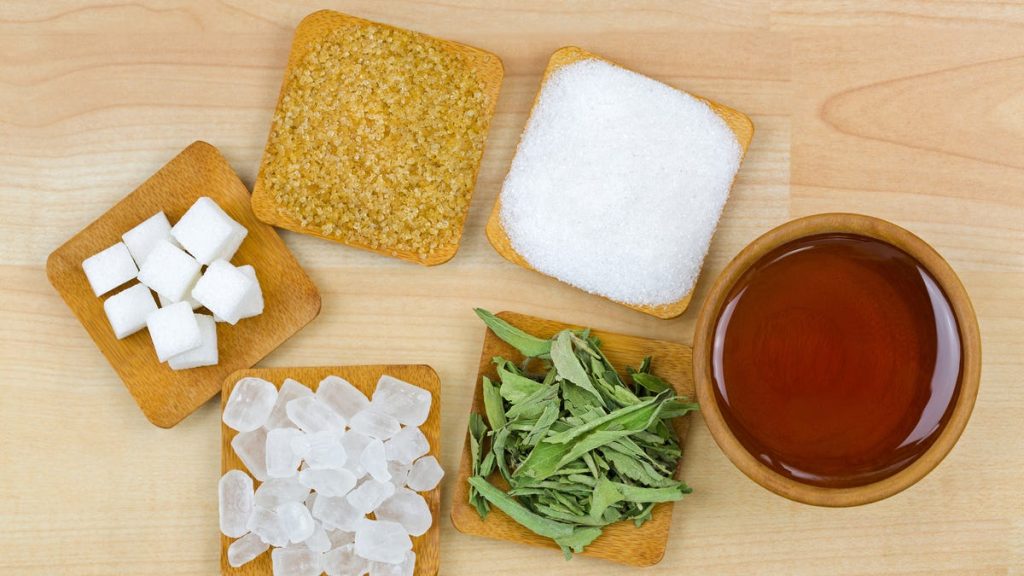In the last 50 years, the consumption of refined sugars has increased significantly, with the average adult consuming far above the recommended levels of added sugars. An ideal diet should consist of no more than 10% calories from added sugar. While sugar is essential for the body as a source of energy, the goal should be to consume the right kinds of sugar. Added sugars, commonly found in processed foods, can lead to serious health complications such as high blood pressure, diabetes, and fatty liver disease.
Natural sugars, found in fruits, honey, and maple syrup, are unrefined or lightly processed and contain essential nutrients such as fiber, vitamins, and antioxidants. These natural sugars provide sweetness without the negative effects of refined sugars. Various natural sweeteners and sugar substitutes are available, including sugar alcohols, artificial sweeteners, and stevia, which offer sweetness without the downsides of processed sugars. By understanding food labels and ingredients lists, consumers can make informed choices about their sugar intake and opt for healthier alternatives.
Honey and maple syrup are popular natural sweeteners that offer nutritional value in addition to sweetness. Honey, in particular, contains beneficial plant compounds and antioxidants that can have positive effects on cardiovascular, gastrointestinal, and respiratory health. Maple syrup also contains antioxidants and minerals that can be beneficial for health, with darker varieties providing even more benefits. Stevia, a plant-based sweetener, is significantly sweeter than table sugar and contains almost no calories, making it a good option for those looking to reduce their sugar intake.
Pureed fruits, such as applesauce and berries, can serve as sweeteners in recipes and add essential dietary fiber that aids in digestion and slows down sugar metabolism. Monk fruit, extracted from a fruit found in Southeast Asia, is another non-nutritive sweetener that is much sweeter than table sugar. Research on monk fruit and other non-nutritive sweeteners shows promising results in terms of weight management and blood sugar control. Fruit juice, when consumed in its natural form without added sugars, can also serve as a natural sweetener with added nutrients and vitamins.
Overall, by incorporating natural sugar alternatives into their diets, individuals can reduce their intake of added sugars while still enjoying sweet treats. These alternatives not only provide sweetness but also offer essential nutrients and antioxidants that can benefit overall health. By making informed choices about sugar consumption and opting for natural sweeteners, individuals can take control of their health and reduce the risk of developing chronic conditions associated with excessive sugar intake.


